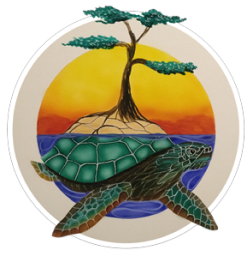The article, “kawiyahîtamik kesi wîcehtâsôk (To Examine in Order to Support/Redirect)” was created as a result of an Indigenous capacity evaluation IRM Research and Evaluation completed in partnership with The Family Centre of Northern Alberta. The article describes our framework for Indigenous program evaluation and includes a case study of the Indigenous capacity evaluation completed with leadership and staff members of The Family Centre.
Recently a conscious effort has been made by human service providers across Canada to Indigenize programming as reconciliation. However, while the delivery of programs shifted, how they are evaluated remains rooted in Western ideologies and methodologies. In response to the tension created in using Western evaluation methods for assessing Indigenous-designed programs, we developed an Indigenous program evaluation framework. The framework is based in nêhiyaw (Cree) teachings and was co-created by Elders and Knowledge Keepers. We use a case study to demonstrate that an appropriately developed Indigenous program evaluation framework leads to more comprehensive, accurate and meaningful data collection and evaluation.
This article is based on a process that was developed over seven years by Elders, Wisdom-Keepers, service providers and the authors to enable Indigenous human service programs and programs providing services to Indigenous peoples to explore their ability to provide these services in a teaching-based and culturally-relevant manner. This process may not apply to all Indigenous programs as different Indigenous communities have different teachings. This article is entirely based on nêhiyaw (Cree) teachings from northern Alberta that were shared by the Elders and knowledge-holders who have been part of the developmental process. The writers often refer to “Western” frameworks or beliefs, values and worldviews. They use this term to describe European and/or Settler paradigms that have been driving the colonization of Indigenous people since first contact. Legislation, policies, and practices are rooted in worldviews, beliefs, and values regarding what is deemed to be right and true. Western frameworks are not Indigenous frameworks. The article concludes with the description of an Indigenous capacity evaluation of a large human service agency. The authors use the English-language term “Indigenous Program Evaluation” throughout the article as English will be the dominant language of most readers. The term does not truly reflect the concepts and teachings of kawiyahîtamik kesi wîcehtâsôk. Because the nêhiyaw language is verb-based and English is noun-based, direct translation from a verb to a noun creates a distinct loss of original meaning.
This article has been approved for publication with the Canadian Journal of Program Evaluation for the Fall 2021 issue – the link to this article will be posted when available.

